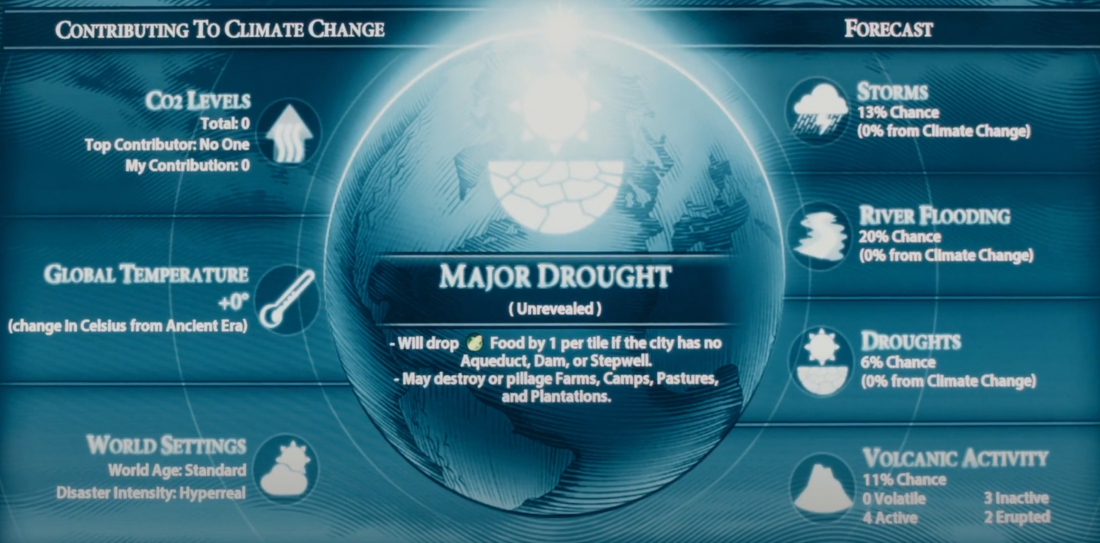
Video games’ potential for climate change engagement
The rising concern regarding the climate crisis and existing uncertainties and misinformation call for messages that are both scientifically accurate and engaging in order to urgently mobilize citizens as climate actors. However, communicating climate change remains challenging. Gamification, or the use of games across society, culture and technology for purposes other than entertainment, is often used to convey climate messages in a way that promotes public understanding, interest, and action. Multiple game-based interventions have been found to engage players with climate change, while influential game companies explore how to create more environmentally conscious messages and designs.
However, the currently available academic literature presents important shortcomings, as many of the games addressed are not accessible to the public, have been created specifically for education, or have not been systematically examined in terms of potential for climate change engagement. For these reasons, Fernández Galeote and Hamari engaged in a current, broad and systematic analysis and discussion on 150 video games’ potential to promote climate change engagement and education. Using a pre-existing framework for climate change engagement through video games, they studied what attributes supporting climate change engagement can be found in existing video games, and the differences between serious games and games for entertainment.
First, the results reveal that potentially engaging attributes are unequally distributed. Some are very common, as they are found in 77-88% of the games. This group includes the use of feedback connected to climate change action, the concreteness of climate messages, the game being fun, and the presence of challenges about climate change. Other features are common, since they are found in 51-69% of the games. These include learning through experience, the use of rewards connected to climate action, challenges that may enhance the efficacy of real behaviors, the presence of characters, the use of levels, narratives connected to climate change, and simulation aspects. Uncommon attributes, in around a third of the games, include credibility of sources, achievability of climate-relevant behaviors in the game, and climate change being depicted meaningfully. Finally, one of the attributes, the presence of social features, is only found in 19% of the games.
Second, a statistical comparison between serious and entertainment games shows that serious games are significantly associated with the attributes achievable, challenging, credible, efficacy-enhancing, experiential learning, and feedback-oriented, while entertainment games tend to feature more narratives than serious games.
The findings reveal coincidences between their own content analysis and empirical studies that examined the effects of games on players, although games that seem to include engaging elements may still be received poorly by certain audiences or in specific contexts. Designers and researchers are encouraged to investigate further the less common attributes in order to determine their effects on climate change engagement empirically. In addition, our analysis reveals considerable data dispersion; most importantly, both serious and entertainment games can be found displaying either many or few attributes. This speaks in favor of not discriminating games based on variables such as the nature of the developers (a game studio, an NGO, an academic actor…) or their apparent purpose (broadly, serious or for entertainment).
The article includes a dataset with the full list of 150 games analyzed and the relevant analysis variables. This may be useful to educators who want to use a particular type of game and to designers and researchers interested in knowing the field better and expanding upon this growing area of research and practice.
Game-based Climate Change Engagement: Analyzing the Potential of Entertainment and Serious Games
Reference:Fernández Galeote, Daniel & Hamari, Juho (2021). Game-based climate change engagement: Analyzing the potential of entertainment and serious games. Proceedings of the ACM on Human-Computer Interaction, 5(CHI PLAY), 1-21. https://doi.org/10.1145/3474653
See the paper for full details:
Abstract
Video games have risen as a popular medium with the potential to become a powerful tool for public climate change engagement. However, little is known about how existing digital games can fulfill this role. This study systematically compiles 150 video games that represent climate change, including serious (n = 109) and for entertainment (n = 41). The games are analyzed by adapting an existing framework (15 dimensions: achievable, challenging, concrete, credible, efficacy-enhancing, experiential learning, feedback-oriented, fun, identity-driven, levelling-up, meaningful, narrative-driven, reward-driven, simulating, social) and statistically compared. The analysis reveals that most games comply with most recommended attributes, but credibility, achievability, meaningfulness, and social features are uncommon or rare. Statistical results comparing serious games and games for entertainment associate six attributes with serious games (achievable, challenging, credible, efficacy-enhancing, experiential learning, feedback-oriented), and one (narrative-driven) with games for entertainment. The findings suggest that researchers would benefit from widening their lens to detect previously overlooked opportunities for game-based climate change engagement, communication, and education. The study also provides a systematic mapping of extant games depicting climate change for interested developers, designers and educators.




Sorry, the comment form is closed at this time.